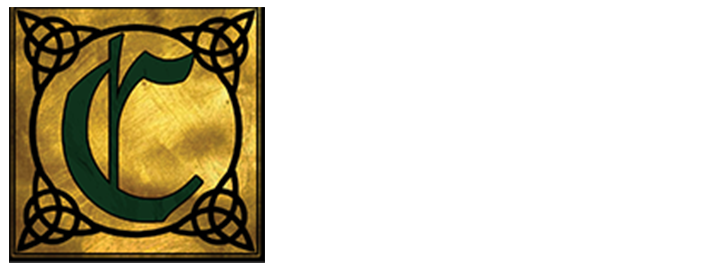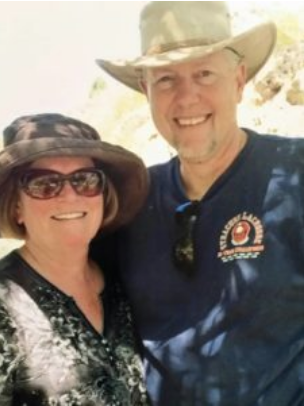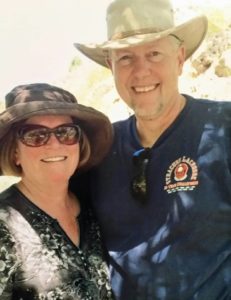“You don’t understand.”
I have been gladly married to the same woman for 38 years. We celebrate our anniversary on August 4th. One would think that after 38 years there would be no more surprises, no more to discover, no more need to ask “How do you feel about that?” After 38 years she still surprises me and I better care about how she is feeling! I still don’t always understand the conclusions she comes to nor do I understand how she got there!
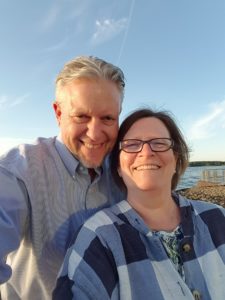 It happened again last night. I was cooking, Robin was telling me about her day. We’re both lifelong educators so I was tracking with her second grade classroom exploits 100%. Or so I thought. I usually ask questions in our chats. This time I made a comment. I knew it was a mistake as soon as I said it. Her first words were, “You don’t understand…”
It happened again last night. I was cooking, Robin was telling me about her day. We’re both lifelong educators so I was tracking with her second grade classroom exploits 100%. Or so I thought. I usually ask questions in our chats. This time I made a comment. I knew it was a mistake as soon as I said it. Her first words were, “You don’t understand…”
Now imagine talking with folks whom you have just met, who begin using vocabulary you’ve never heard, points of view foreign from your own, and a very different way of understanding the world. University settings include foreign languages all their own. Higher education includes a multiplicity of schools, departments, programs, majors, and professors. Classes study a diversity of approaches to research. Liberal arts programs are very different from pre-med, the chemistry department, or accounting. Were we to begin a dialogue across disciplines we might often hear the phrase, “You don’t understand…”
This was my experience in a conference on transdisciplinarity which means teaching-learning across disciplines. I was amazed at the assembled cast.
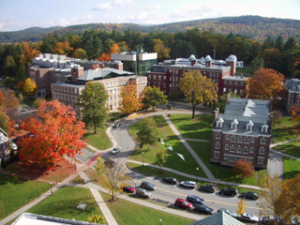 An archaeologist sat across the table from me. He does digs through Israel with specific attention toward the antiquity of Israelite history. Another scholar is a brilliant philosopher, an author of many books, who teaches in New York City at the prestigious, cutting-edge King’s College. Still another scholar shared her erudition through epistemology, the study of knowledge. Her book Loving to Know is beginning to redefine major concepts in her field. There was a psychologist, a research writer, a college president, an apologist, a theologian, a political scientist, a university provost, and a chemical engineer: every one, a teaching professor.
An archaeologist sat across the table from me. He does digs through Israel with specific attention toward the antiquity of Israelite history. Another scholar is a brilliant philosopher, an author of many books, who teaches in New York City at the prestigious, cutting-edge King’s College. Still another scholar shared her erudition through epistemology, the study of knowledge. Her book Loving to Know is beginning to redefine major concepts in her field. There was a psychologist, a research writer, a college president, an apologist, a theologian, a political scientist, a university provost, and a chemical engineer: every one, a teaching professor.
 The assembled group all claimed a Christian worldview. But our frames of reference were quite different even within our religious agreement. Catholics, Seventh-Day Adventists, Presbyterians, Free-Will Baptists, among many others, were present. Our work toward a book project centered on the question, “What relevance does the Bible have for Christian scholarship and higher education?”
The assembled group all claimed a Christian worldview. But our frames of reference were quite different even within our religious agreement. Catholics, Seventh-Day Adventists, Presbyterians, Free-Will Baptists, among many others, were present. Our work toward a book project centered on the question, “What relevance does the Bible have for Christian scholarship and higher education?”
Now one would think that for a group of Christian thinkers this would be obvious. But it is not. In order to do scholarship we must work in our fields with the methods, tools, foundations, writings, and foci of our disciplines. For instance, can the assumptions of a sacred book drive the pursuit and practice of so-called “secular” history? If a chemical engineer and a philosopher are talking, how do they understand each other? Which brings us back to transdisciplinarity: teaching-learning across disciplines. Is this project even possible?
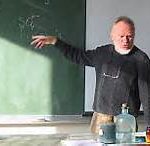 Getting professors to talk across their discipline to other disciplines is very difficult. A good number of PhD’s dig a deep disciplinary hole, climb in, and are never seen again. Higher education in general has built “silos.” These tall, singular monoliths, often made of concrete, do not play well with others. Departments do not often speak with each other. Turf wars result in custody battles over curricular direction. Reading is dedicated only to one’s area of expertise. Jealousies, rivalries, and personal attacks sometimes mire the university setting through internecine conflicts.
Getting professors to talk across their discipline to other disciplines is very difficult. A good number of PhD’s dig a deep disciplinary hole, climb in, and are never seen again. Higher education in general has built “silos.” These tall, singular monoliths, often made of concrete, do not play well with others. Departments do not often speak with each other. Turf wars result in custody battles over curricular direction. Reading is dedicated only to one’s area of expertise. Jealousies, rivalries, and personal attacks sometimes mire the university setting through internecine conflicts.
 So what is the use? Why try to get doctors to read literature? Why encourage English majors to talk with physicists? What does Silicon Valley have to do with The Moth Radio Hour? How do storytellers relate with architects? If we only talk with others in our disciplines we remain in an echo chamber.
So what is the use? Why try to get doctors to read literature? Why encourage English majors to talk with physicists? What does Silicon Valley have to do with The Moth Radio Hour? How do storytellers relate with architects? If we only talk with others in our disciplines we remain in an echo chamber.
 Translators. Bridge-builders. Tour guides. Ambassadors. Connectors. Pick a metaphor. Disciplinary experts need people who will “cross-over,” doing the hard work of investigating other disciplinary cultures to see linkage between our respective research and course-specific commitments.
Translators. Bridge-builders. Tour guides. Ambassadors. Connectors. Pick a metaphor. Disciplinary experts need people who will “cross-over,” doing the hard work of investigating other disciplinary cultures to see linkage between our respective research and course-specific commitments.
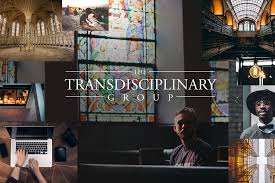 So our group committed to some basic ground rules. Our agreement is elementary but necessary. We agreed to these basic pillars of belief,
So our group committed to some basic ground rules. Our agreement is elementary but necessary. We agreed to these basic pillars of belief,
(1) the distinctiveness of our Christian worldview, (2) multiple sources of knowledge, (3) open collaboration, (4) vitality in learning, (5) respect for others’ callings, (6) universal principles, (7) the cultural-contextual differences we engage, (8) incarnational investment in hearing others, (9) a proper posture of humility in learning, and (10) pure joy of discovery.
 The most important focus of our work is our students. For whom do we do our work? Is our energy given toward our next accomplishment or the next generation? Is our legacy what we leave behind or who we leave behind? Are we mentoring students to eventually take our place? Do we encourage student writing in the next “call for papers”? Are our students the first thing we think of when we think of “doing our work”?
The most important focus of our work is our students. For whom do we do our work? Is our energy given toward our next accomplishment or the next generation? Is our legacy what we leave behind or who we leave behind? Are we mentoring students to eventually take our place? Do we encourage student writing in the next “call for papers”? Are our students the first thing we think of when we think of “doing our work”?
So in our transdisciplinary group, I offered what I referred to as “disciplinary threads” which might be woven through our book project much less our curricula. My threads include the need in every course of study to practice
(1) apologetics—an explanation of and defense for our discipline;
(2) hermeneutics—a reason for and an accounting of how we interpret our discipline within the world;
(3) transformations—the changes that could take place in a student who studies our discipline; and
(4) benefits—a demonstration of how our discipline assists humanity.
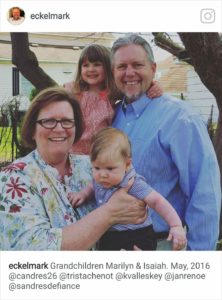 Robin and I recently enjoyed a nice discussion of our day, good food, and a couple of Downton Abbey episodes. After 38 years of marriage we understand a great deal about each other. But there is more to know and some things we will never fully understand. Transdisciplinarity is much like marriage: we cross over into another life or another discipline to learn from each other, create benefits for others through collaboration, and appreciate the discovery of learning together.
Robin and I recently enjoyed a nice discussion of our day, good food, and a couple of Downton Abbey episodes. After 38 years of marriage we understand a great deal about each other. But there is more to know and some things we will never fully understand. Transdisciplinarity is much like marriage: we cross over into another life or another discipline to learn from each other, create benefits for others through collaboration, and appreciate the discovery of learning together.
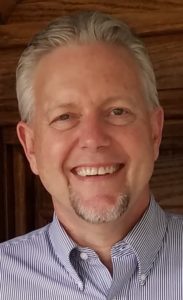 This is a reflection Mark wrote after the February, 2017 Houston transdisciplinary conference. Dr. Mark Eckel is President of The Comenius Institute (site) (1 min video) and loves crossing disciplinary boundaries with faculty and students.
This is a reflection Mark wrote after the February, 2017 Houston transdisciplinary conference. Dr. Mark Eckel is President of The Comenius Institute (site) (1 min video) and loves crossing disciplinary boundaries with faculty and students.
